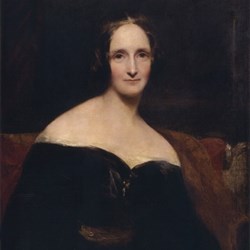Frankenstein
In her groundbreaking novel, "Frankenstein," Mary Shelley weaves a rich tapestry of Gothic horror intertwined with profound philosophical inquiry. Through the tragic story of Victor Frankenstein and his monstrous creation, Shelley explores themes of ambition, the quest for knowledge, and the ethical implications of scientific endeavor. Written in the early 19th century, amidst the backdrop of the Industrial Revolution and Romanticism, the book employs a structured narrative style, blending epistolary elements with vivid descriptions that evoke both sympathy and terror. Shelley's literary craftsmanship challenges the boundaries of nature and humanity, making the work a precursor to both science fiction and existential literature. Mary Shelley, often heralded as the mother of science fiction, crafted "Frankenstein" at a remarkably young age during a summer in 1816 spent in Switzerland with Lord Byron and Percy Bysshe Shelley. The intellectual exchanges and personal tragedies surrounding her life, including the death of her mother and her tumultuous relationship with Percy, deeply influenced her exploration of creation, loss, and the human condition. Her unique perspective as a woman writer in an era dominated by men adds an essential layer of critique regarding gender roles in both science and society. "Frankenstein" is a must-read for anyone interested in the philosophical dilemmas posed by scientific advancements and the responsibility that comes with creation. Shelley's work remains profoundly relevant, prompting readers to reflect on the consequences of humanity's relentless pursuit of knowledge and the moral questions it raises. Dive into this timeless exploration of creation and consequence, and discover the unsettling yet thought-provoking narrative that continues to capture the imagination. The novel's pervasive influence and relevancy echo to this day, serving as a testament to the power of human imagination to conceive works of art that question the very fabric of life itself.
-
Autore:
-
Anno edizione:2022
-
Editore:
-
Formato:
-
Testo in en
Formato:
Gli eBook venduti da Feltrinelli.it sono in formato ePub e possono essere protetti da Adobe DRM. In caso di download di un file protetto da DRM si otterrà un file in formato .acs, (Adobe Content Server Message), che dovrà essere aperto tramite Adobe Digital Editions e autorizzato tramite un account Adobe, prima di poter essere letto su pc o trasferito su dispositivi compatibili.
Cloud:
Gli eBook venduti da Feltrinelli.it sono sincronizzati automaticamente su tutti i client di lettura Kobo successivamente all’acquisto. Grazie al Cloud Kobo i progressi di lettura, le note, le evidenziazioni vengono salvati e sincronizzati automaticamente su tutti i dispositivi e le APP di lettura Kobo utilizzati per la lettura.
Clicca qui per sapere come scaricare gli ebook utilizzando un pc con sistema operativo Windows




